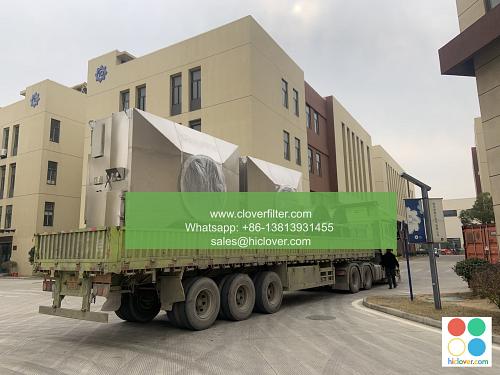The Connection Between Air Filters and Energy Efficiency

Air filters play a crucial role in maintaining indoor air quality, but their impact extends beyond just air quality. A significant connection exists between air filters and energy efficiency, making them an essential component in the quest for sustainable and environmentally friendly buildings. In this article, we will delve into the relationship between air filters and energy efficiency, highlighting various application areas and exploring the benefits of using high-quality air filters.
Introduction to Air Filters and Energy Efficiency
Air filters are designed to remove pollutants and particulate matter from the air, improving indoor air quality and promoting a healthier environment. However, air filters also have a significant impact on the energy consumption of buildings. By reducing the amount of energy required to heat, cool, and ventilate buildings, air filters can contribute to significant energy savings. This is particularly important in commercial and industrial settings, where energy costs can be substantial.
The Role of Air Filters in HVAC Systems
Heating, Ventilation, and Air Conditioning (HVAC) systems are the largest consumers of energy in buildings, accounting for approximately 40% of total energy consumption. Air filters play a critical role in HVAC systems, as they help to remove pollutants and particulate matter that can damage equipment and reduce system efficiency. By using high-quality air filters, building owners and operators can reduce the energy required to operate HVAC systems, resulting in significant energy savings.
Key Benefits of Energy-Efficient Air Filters
The use of energy-efficient air filters offers several benefits, including:
* Reduced Energy Consumption: Energy-efficient air filters can reduce the energy required to operate HVAC systems, resulting in significant energy savings.
* Improved Indoor Air Quality: Energy-efficient air filters can remove pollutants and particulate matter from the air, improving indoor air quality and promoting a healthier environment.
* Extended Equipment Life: Energy-efficient air filters can help to extend the life of HVAC equipment by reducing the amount of pollutants and particulate matter that can damage equipment.
* Cost Savings: Energy-efficient air filters can result in significant cost savings, as they reduce the energy required to operate HVAC systems and extend the life of equipment.
Application Areas for Energy-Efficient Air Filters
Energy-efficient air filters have a wide range of applications, including:
* Commercial Buildings: Energy-efficient air filters are ideal for commercial buildings, where energy costs can be substantial.
* Industrial Settings: Energy-efficient air filters are also suitable for industrial settings, where air quality and energy efficiency are critical.
* Residential Buildings: Energy-efficient air filters can also be used in residential buildings, where they can help to improve indoor air quality and reduce energy consumption.
* Data Centers: Energy-efficient air filters are essential in data centers, where air quality and energy efficiency are critical to maintaining equipment and reducing downtime.
Conclusion
In conclusion, the connection between air filters and energy efficiency is significant, and the use of high-quality air filters can result in substantial energy savings. By understanding the role of air filters in HVAC systems and the key benefits of energy-efficient air filters, building owners and operators can make informed decisions about air filter selection and maintenance. With their wide range of applications, energy-efficient air filters are an essential component in the quest for sustainable and environmentally friendly buildings.
Keyword Highlights: Air Filters, Energy Efficiency, HVAC Systems, Indoor Air Quality, Sustainable Buildings, Environmentally Friendly, Commercial Buildings, Industrial Settings, Residential Buildings, Data Centers.
Related Topics: Green Building, Sustainable Energy, Energy Conservation, Indoor Air Quality Management, HVAC System Optimization. It seems like you’ve provided a blank prompt. Can you please provide more context or clarify what you would like to know or discuss? I’ll do my best to assist you.

